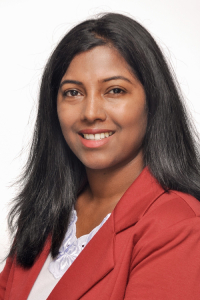Read in 30s...
Hair naturally changes over time — you might notice thinning, graying, or changes in texture. Genetics, lifestyle factors, and hormonal shifts all contribute. This article explores why these changes happen, the science behind them, and how supportive care and healthy habits can help maintain the appearance and feel of your hair as you age.
How Can Aging Affect Your Hair?
Hair Thinning
Many people experience a gradual reduction in hair density over time. This can be due to changes in hair follicle size and activity, resulting in finer strands.
Graying Hair
Hair color comes from melanin. As we age, melanin production slows or stops, leading to gray or white hair. While graying is generally permanent, scientists continue to study the biology of pigmentation.
Hair Shedding
Some individuals notice more frequent hair shedding or changes in hair distribution. While this can be part of natural aging, other factors — like overall health or genetic predisposition — may also play a role.
The Science Behind Your Changing Hair
Hair changes with age when the balance (homeostasis) in the hair follicle environment shifts. Factors such as oxidative stress, hormonal changes, and inflammation can influence hair follicle function, pigment production, and growth cycles.
How Hair Texture Changes With Age
- Straight Hair – Thinning can be more visible, and hair may appear drier with reduced natural oils.
- Wavy or Curly Hair – May become frizzier or drier, with some loosening of curl patterns.
- Coarse or Thick Hair – May retain more volume but can still experience density changes and uneven graying.
- Fine Hair – Often shows more visible scalp with thinning.
The Role of Genetics in Age-Related Hair Changes
Genetics influence how and when hair changes occur — from the timing of graying to patterns of thinning. These inherited traits determine how hair follicles respond over time and are a key factor in individual hair aging patterns.
Learn more about hair loss approaches here.
Lifestyle Factors That Influence Hair Health
- Nutrition – A balanced diet with adequate protein, vitamins, and minerals supports the structure and strength of hair.
- Stress & Sleep – Chronic stress and insufficient rest can influence the body’s natural cycles, including those that affect hair.
- Hair Care Practices – Gentle handling, avoiding excessive heat, and protecting hair from environmental damage can help maintain its condition.
Hormonal Shifts and Hair
- Menopause – Hormonal changes can influence hair thickness and texture in women.
- Men’s Hormonal Changes – Hormone patterns over time can contribute to gradual changes in hair density.
Advances in Hair Care and Scalp Health
Recent innovations in hair care focus on:
- Antioxidant-based formulas to help protect hair from environmental stressors.
- Peptide and botanical blends designed for scalp wellness.
- Non-invasive cosmetic procedures such as low-level light therapy or scalp treatments aimed at improving hair’s appearance.
Key Takeaway
Aging is a natural process that affects hair just as it affects skin and other tissues. While you can’t completely stop these changes, understanding the factors behind them can help you choose supportive care options, healthy lifestyle habits, and styling approaches that keep your hair looking and feeling its best.
DisclaimerThis content is intended for educational purposes only and should not be interpreted as medical advice. Always consult a licensed healthcare provider for personalized recommendations. |
FAQs
Q: Why does hair thinning happen with age?
A: Over time, hair follicles may produce finer strands due to natural changes in their structure and activity.
Q: Can hair patches be reversed?
A: The approach depends on the underlying cause. Some cosmetic and supportive care methods may help improve hair’s appearance.
Q: What are some ways to address hair changes in older age?
A: Approaches can include gentle hair care routines, balanced nutrition, and professional cosmetic consultations.
Q: Are hair texture changes permanent?
A: Hair texture changes from aging are generally long-term, though styling and care techniques can help manage them.
Q: Does hair type affect age-related hair changes?
A: Yes. Fine hair may show more visible scalp with thinning, while coarse hair may maintain volume longer but still change over time.
Q: Can natural remedies help?
A: Certain natural products may help improve hair’s appearance, but they do not reverse the natural aging process.
ReferencesTrüeb, R. M., Rezende, H. D., & Dias, M. F. R. G. (2018). A Comment on the Science of Hair Aging. International journal of trichology, 10(6), 245–254. https://doi.org/10.4103/ijt.ijt_56_18 Williams, R., Pawlus, A. D., & Thornton, M. J. (2020). Getting under the skin of hair aging: the impact of the hair follicle environment. Experimental dermatology, 29(7), 588–597. https://doi.org/10.1111/exd.14109 Trüeb, Ralph M. Oxidative Stress in Ageing of Hair. International Journal of Trichology 1(1):p 6-14, Jan–Jun 2009. | DOI: 10.4103/0974-7753.51923 Maymone, M. B. C., Laughter, M., Pollock, S., Khan, I., Marques, T., Abdat, R., Goldberg, L. J., & Vashi, N. A. (2021). Hair Aging in Different Races and Ethnicities. The Journal of clinical and aesthetic dermatology, 14(1), 38–44. Stein J. M. (1975). The effect of adrenaline and of alpha- and beta-adrenergic blocking agents on ATP concentration and on incorporation of 32Pi into ATP in rat fat cells. Biochemical pharmacology, 24(18), 1659–1662. https://doi.org/10.1016/0006-2952(75)90002-7 Wang, S., Kang, Y., Qi, F., & Jin, H. (2023). Genetics of hair graying with age. Ageing research reviews, 89, 101977. https://doi.org/10.1016/j.arr.2023.101977 Villani, A., Ferrillo, M., Fabbrocini, G., Ocampo-Garza, S. S., Scalvenzi, M., & Ruggiero, A. (2022). Hair Aging and Hair Disorders in Elderly Patients. International journal of trichology, 14(6), 191–196. https://doi.org/10.4103/ijt.ijt_90_21 Liang, A., Fang, Y., Ye, L., Meng, J., Wang, X., Chen, J., & Xu, X. (2023). Signaling pathways in hair aging. Frontiers in cell and developmental biology, 11, 1278278. https://doi.org/10.3389/fcell.2023.1278278 Santos, J. S., Barradas, T. N., & Tavares, G. D. (2022). Advances in nanotechnology-based hair care products applied to hair shaft and hair scalp disorders. International journal of cosmetic science, 44(3), 320–332. https://doi.org/10.1111/ics.12780 Koike, Kenzo. (2019). Special Issue “Recent Advances in Hair Science and Hair Care Technologies”. Cosmetics. 6. 61. 10.3390/cosmetics6040061.
|
